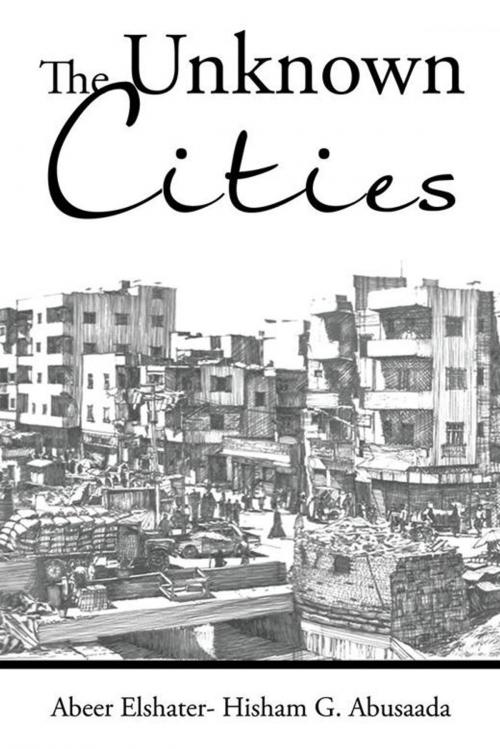The Unknown Cities
From Loss of Hope to Well-Being [And] Self-Satisfaction
Nonfiction, Art & Architecture, General Art, Social & Cultural Studies, Social Science| Author: | Abeer Elshater | ISBN: | 9781482862294 |
| Publisher: | Partridge Publishing Africa | Publication: | April 22, 2016 |
| Imprint: | Partridge Publishing Africa | Language: | English |
| Author: | Abeer Elshater |
| ISBN: | 9781482862294 |
| Publisher: | Partridge Publishing Africa |
| Publication: | April 22, 2016 |
| Imprint: | Partridge Publishing Africa |
| Language: | English |
This book investigates the many relatively unknown Egyptian cities, which research has largely ignored. It seeks to enhance the livability of urban areas and stop the processes that turn residents into anti-utopians and their cities into dystopias. It examines urbanization patterns in what are currently rural or informal settlements. It draws on concepts from Western and Arabic thought concerning idealism and utopianism, linking anti-utopianism with ideas such as loss of hope and residents right to the city. It also investigates the epistemology and methodology of urban design, using the descriptive-analytical approach to evaluate methods of self-criticism to address the problems and enhance urban planning and design. The literature regarding ten-minute neighborhoods is reviewed, along with a comparative content analysis of online articles, and the resultant principles are tested through site observation. It is found that happiness can be promoted by the principle of ten-minute pedestrian access to essential services, which can viably guide the reformation of urban planning. This work recommends that urban planning should be based on the ten-minute neighborhood, thus improving the future prospects of utopianism in Egypts unknown cities. Recently, in the first decade of the twenty-first century, there was a definite human crisis that emerged in the Egyptian cities at the level of local urban communities, which reflects on the whole city and the attached ones. The problem seems to be in the transformation of some urban sites in the metropolitan [and small] cities to become dystopian places, regarding the dynamic impact of the anti-utopian people. The concept of anti-utopians stands as an intermediate step between livable cities and dystopian communities through the transformation that occurs due to the lack of strategic plans by the administrators and/or the experts, with a special mention to the plans for poor people. Therefore, from our perspective, there is an urgent need to say that the majority of Egyptian cities should be declared as domains of humanitarian disasters, which are caused by human hazards rather than the natural disasters, e.g. earthquakes, volcanoes, floods, whirlwinds, and hurricanes. Thus, the first/headmost city that will announce its failure in the structural and human scene will get the self-respect and worlds estimate as well.
This book investigates the many relatively unknown Egyptian cities, which research has largely ignored. It seeks to enhance the livability of urban areas and stop the processes that turn residents into anti-utopians and their cities into dystopias. It examines urbanization patterns in what are currently rural or informal settlements. It draws on concepts from Western and Arabic thought concerning idealism and utopianism, linking anti-utopianism with ideas such as loss of hope and residents right to the city. It also investigates the epistemology and methodology of urban design, using the descriptive-analytical approach to evaluate methods of self-criticism to address the problems and enhance urban planning and design. The literature regarding ten-minute neighborhoods is reviewed, along with a comparative content analysis of online articles, and the resultant principles are tested through site observation. It is found that happiness can be promoted by the principle of ten-minute pedestrian access to essential services, which can viably guide the reformation of urban planning. This work recommends that urban planning should be based on the ten-minute neighborhood, thus improving the future prospects of utopianism in Egypts unknown cities. Recently, in the first decade of the twenty-first century, there was a definite human crisis that emerged in the Egyptian cities at the level of local urban communities, which reflects on the whole city and the attached ones. The problem seems to be in the transformation of some urban sites in the metropolitan [and small] cities to become dystopian places, regarding the dynamic impact of the anti-utopian people. The concept of anti-utopians stands as an intermediate step between livable cities and dystopian communities through the transformation that occurs due to the lack of strategic plans by the administrators and/or the experts, with a special mention to the plans for poor people. Therefore, from our perspective, there is an urgent need to say that the majority of Egyptian cities should be declared as domains of humanitarian disasters, which are caused by human hazards rather than the natural disasters, e.g. earthquakes, volcanoes, floods, whirlwinds, and hurricanes. Thus, the first/headmost city that will announce its failure in the structural and human scene will get the self-respect and worlds estimate as well.















